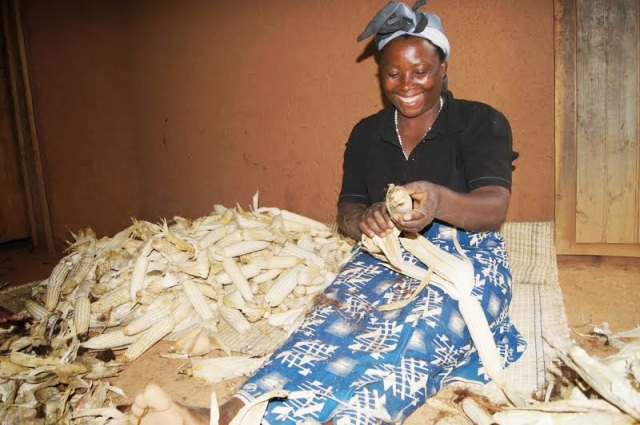Gone are the days when agriculture is believed to just provide food. Agriculture is now a major tool for poverty reduction and an edifice for development. In time past, scholars have argued the significance of agriculture in poverty reduction. But most studies have come to the conclusion that agriculture is beneficial for poverty reduction, especially in sub-Saharan Africa.
Sub-Saharan Africa has been categorized as an agriculture-base economy, simply because 69% of its population engages in agriculture, most of who live in rural areas, and are subsistent farmers. Agriculture accounts for 29% of its GDP (World Bank, 2015). 75% of poor people live in rural areas in sub-Saharan Africa (IFAD, 2010).
Growth in agriculture contributes to a greater supply of food and lower food prices. And this benefits both rural and urban poor. Agriculture has a multiplier effect on other sectors of the economy (Haggblade et al., 2007). Agricultural sector itself might grow at a slower pace than the non-agricultural sector, but investments and policy reforms in the sector will actually yield faster overall economic growth. Studies finds out that agriculture is very important and effective in poverty reduction among extremely poor people (i. e. those making less than one dollar a day).
According to World Bank (2007), agricultural productivity should be raised with policies investing in Research and Development (R&D) and innovation. Biotechnology has great potential in Africa (Borlaug, 2000). Norman Borlaug (Father of green revolution) led scientific research that boosted wheat and rice production in the world. And this boost, affected Asia’s production positively that, it defies the Malthusian theory that India will run out of food to feed its population in the 18th century.
Smallholder farmers should be targeted with policies that promote access to quality input materials, access to market and credit facilities. In Nigeria for instance, cassava is one of the major food crop grown in almost all parts of the country. The released of improved varieties of cassava stems by IITA, has increased production in the country. Farmers now make more in terms of earnings on sales of cassava roots. And this has positively affected the non-agricultural sectors as well.
The country now generates foreign revenues from sales of cassava products. Rising agricultural incomes are spent on industrial products for household, education, infrastructure, health care, media e.t.c. In the early good agricultural years of Nigeria, income generated from agriculture was used to develop the southern part of the country infrastructural-wise. The first skyscraper in the country was built from revenues agriculture and named after an agricultural crop (Cocoa House), the first television station in the country; the first university in the country was all built from proceeds from agriculture. This is a living proof that growth in agriculture spills to non-agriculture sectors.
Agriculture contributes to poverty reduction because it provides employment to the poor, (the majority of the population) who also have generally low skills and education, as well as supporting the growth of non-agricultural employment in the rural areas. As the majority of poor people in sub-Saharan Africa depend directly on agriculture for their livelihood, it is often argued that agricultural growth has a higher return in terms of poverty reduction (i. e. higher participation effect).
Although, interest in agriculture seems to have increased lately, this is due to the efforts of international bodies like, IFAD, FAO, the OECD, the UN and UNDP, and the World Bank. Growth in agriculture reduces poverty, although its importance diminishes as economies grow and become more diversified. In India for instance, rapid growth rates in livestock agriculture have contributed immensely to poverty reduction.

Good piece Dolapo.
I think Nigeria law makers have a huge role to play in making Agriculture a main focus of the nation’s economic growth plan. Many Nigerians wouldn’t invest in Agriculture because of the risk involved and the longterm yield on investment.
I strongly believe that Agriculture with improved technology will enhance the nation’s economic growth and subsequently reduce poverty.
Thanks Eniola. Policies that favour agriculture will go a long way to better agriculture in the countries